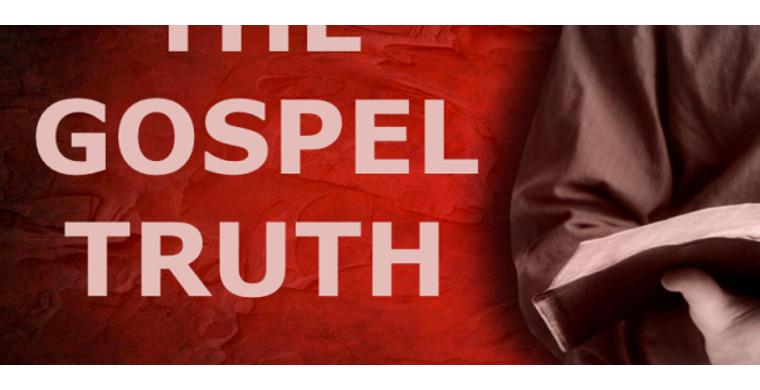Gospel Truth is at the heart of Anglicanism not Ecumenism
COMMENTARY
By David W. Virtue DD
www.virtueonline.org
June 6, 2016
An Opinion piece by Evie Vernon, Programme Adviser for the Anglican mission agency Us (formerly USPG), says there is no need to despair about the ongoing realignment and possible break-up of the Anglican Communion. "Despite centuries of sectarian division there remain sincere attempts to find unity amid the diversity of the Christian church."
Anglicans, she says, have been foundational in the modern Ecumenical movement. Today they make up 11 per cent of World Council of Churches membership. (See (http://www.anglicannews.org/news/2014/07/anglicans,-episcopalians-from-five-continents-on-wcc%E2%80%99s-governing-body.aspx)
"The Anglican Communion is engaged in dialogue with several other Christian groups, including Baptist, Lutheran, Methodist, Old Catholic, Oriental Orthodox, Orthodox, Reformed and Roman Catholic bodies."
VOL: And that proves what exactly. Organic or institutional unity has never been on the cards. Dialogue has yielded little or nothing, ARCIC talks with Rome have also gone nowhere in 40 years, and collaboration only exists when crises emerge that demand collective efforts to heal human situations. The WCC is a spent force and the NCC in America closed the 'God box' in NYC several years ago. The NCC has all but collapsed. We have been dialogued to death with no visible results.
Us: Anglican churches are in full communion with the Old Catholics, the Iglesia Filipina Independiente (IFI) and the Mar Thoma Syrian Church of Malabar, based in Kerala, India. This means that Anglicans and members of these bodies can share fully in worship, receive the Eucharist and accept clergy from each other. In addition, the United Churches of South India, North India, Pakistan and Bangladesh are considered provinces of the Anglican Communion.
VOL: These are small alliances that do not affect the big picture of global Anglicanism, which is de facto split if not de jure.
Us: In the early days of the Protestant mission movement, Anglican agencies such as SPCK, SPG (now Us) and CMS, sometimes used Lutheran workers in their mission fields.
VOL: Again. this proves what, who cares and this is not where things are today. Back then they were basically evangelical (as was USPG). Cooperation is often very localized, but not on a national scale. For example, Anglicans, Lutherans and Catholics in African nations enjoy cordial relationships, but both maintain sharp ecclesiastical and doctrinal differences that will never see them coming together.
Us: This means Christians have managed to reach out to each other over the deep fissures of doctrinal intolerance.
VOL: Nonsense. The birth of GAFCON gives the lie to that. GAFCON today speaks for more than 75% of the Anglican Communion and is only growing as Western pananglicanism slowly withers and dies over doctrinal and moral issues. This is not about "intolerance" at all. It is about a fundamental understanding of the nature of the gospel itself, which Us doesn't get.
Us: The Anglican Communion -- despite being bloodied by seventeenth century sectarian violence and racked to the present day with its own internal feuds -- has nonetheless consistently sought to be part of the movement towards reconciling and reuniting churches.
VOL: The sectarian violence of the 17th Century is nothing compared to the doctrinal and moral violence that was done in the late 20th century, instigated by North American Episcopalians, and has resulted in a vast realignment of Anglicanism with the fabric of the communion lying torn and tattered across the globe.
Us: When one feels particularly despairing, the two millennia of Christian church history can seem like a tale of a fractious, fragmentary, fanatical and sometimes fratricidal family, with each member convinced that her or his version of the truth is the only one. Division and disunity seem to be inextricably part of the Christian experience. Even in the earliest times, Jesus' disciples quarreled among themselves about who was the greatest (Luke 9:46), and Paul had to tackle the Corinthians about quarrelling between those who called themselves followers of Paul and those who followed Apollos (1 Cor 3).
VOL: This is more eisegesis than exegesis and equally bad theology. The doctrinal differences today in the Anglican Communion profoundly effects the souls and destiny of millions of Anglicans over the very nature of salvation and who is and who is not in the kingdom. The disciples, quarrelling among themselves about who was the greatest, was in an in-house fight among brothers in the faith who should have known better. The latter might be seen as childish, the former has eternal consequences for millions.
Us: And yet there is another narrative. Despite our differences and our failures, Christians continue to take seriously Jesus' prayer 'that they all may be one' (John 17:21). We are committed to working together in ways that acknowledge the unique gifts of our own traditions, but which respect the glories of different points of view and ways of worship.
VOL: The oneness Jesus prayed for was not denominational oneness or "working together" because there were no denominations at that time. This was a oneness in spirit for those who, through their preaching, believe on Him. He prays that they may be one. This unity of all believers finds its ideal in the unity of the Father and the Son: καθὼς σὺ, πάτερ κ. τ. λ., and not only its ideal, but its unifying principle and element, ἐν ἡμῖν. This unity of all believers is to result in the universal belief in Christ's mission, ἵνα ὁ κόσμος ... ἀπέστειλας.
VOL: Furthermore, this is NOT about different ways of worshipping together. "Points of view" allows no change in gospel definition or understanding.
It is ironic that Us was once USPG - United Society for the Propagation of the Gospel (USPG). No more. The "propagation" bit was dropped as irrelevant in today's inclusive climate. As a result Us is nothing more than a social service agency propagating only good works and nothing of the historic message of Jesus Christ. That should tell you everything.
END














